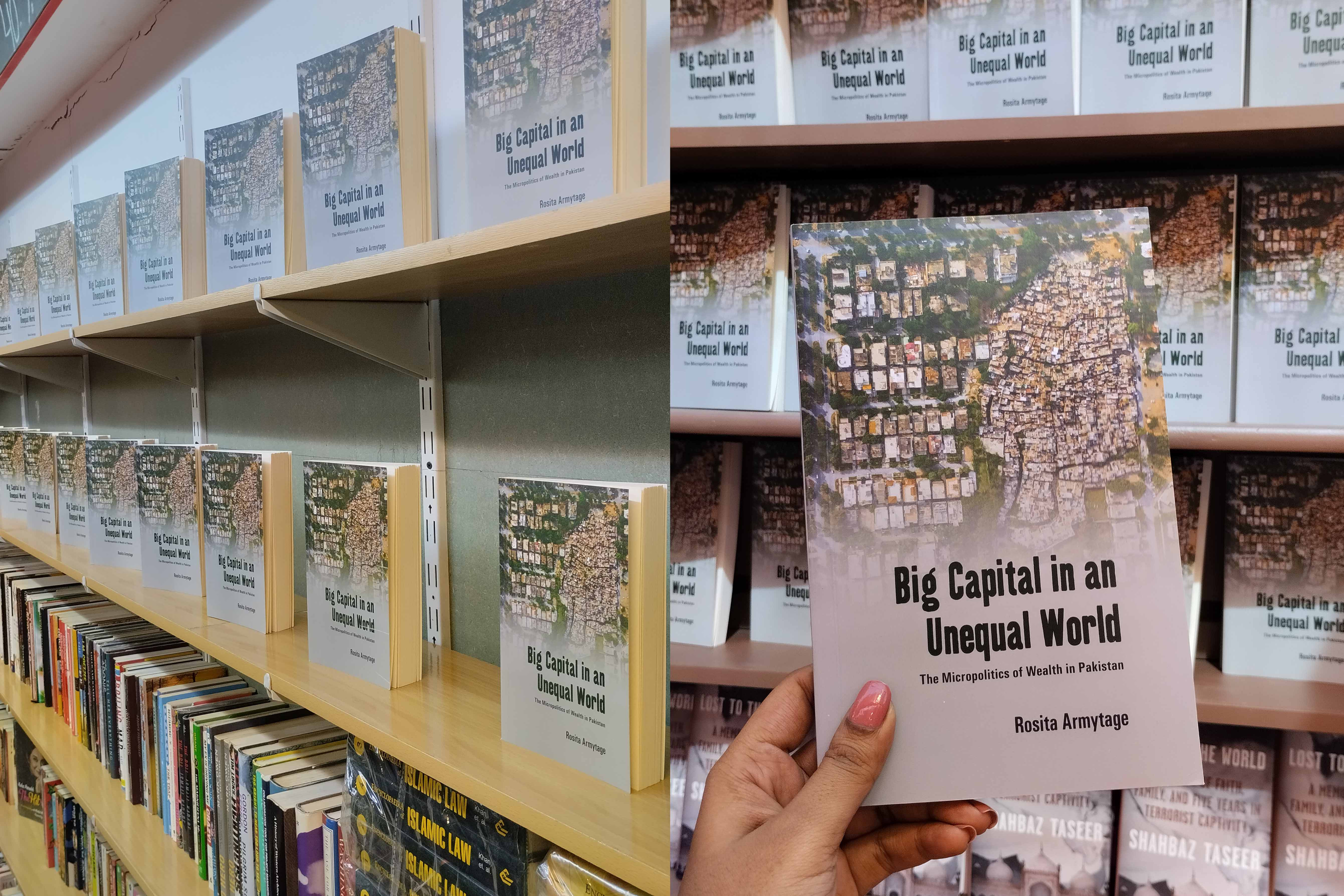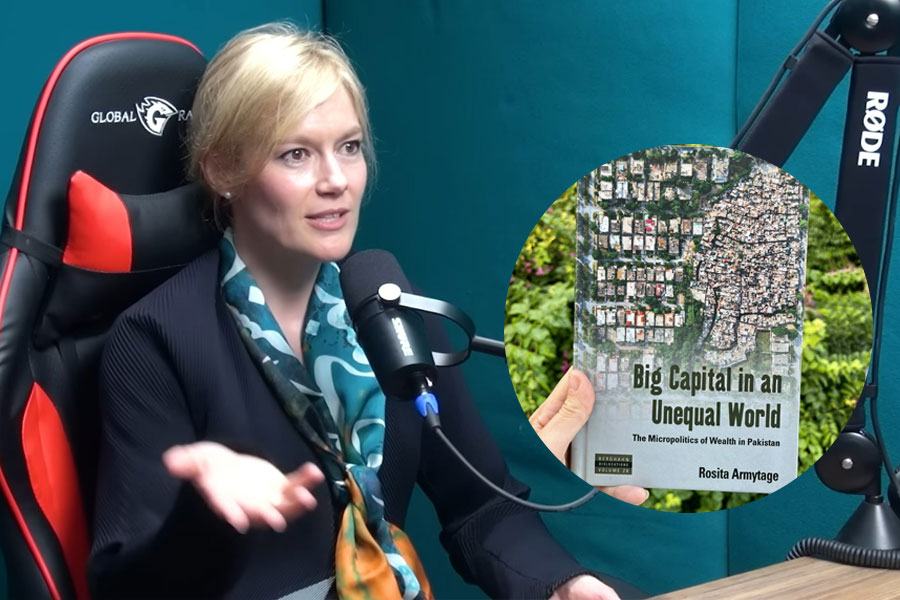Rosita Armytage has many feathers on her hat. Armytage is an Australian anthropologist and the lead qualitative researcher cum author amongst many other things.
She visited Pakistan to launch her book, Big Capital in an Unequal World: The Micro Politics of Wealth in Pakistan. The book has fascinating insights about how the elite 1% maintain their positions in the country.
Rosita Armytage visited Pakistan on a backpacking adventure, after which she fell in love with the country and decided to return. On her second trip, she spent 14 months amongst the 1% after she chose Pakistan for her PhD research project in which she set out to investigate Pakistan’s elite.
The research she gathered over months consisted of video interviews of elite families who opened up about power and influence linked by family, social connections and marriages, through which economic and political competition, deals and alliances are made.
Rosita Armytage’s ‘1%’ Inspiration
Initially, her focus was going to be middle-class, however, after research and intriguing insights, her vision shifted. She quotes:
I wanted to learn more about middle-class Pakistanis as I spent a lot of time with my colleagues and my friends. But one day, I had to go to Lahore to meet some academics at LUMS and was all set for a Daewoo trip, but my friend who I was staying with suggested that I go with a friend of hers who was driving to Lahore. Over the three and a half hours of this car ride to Lahore, I started asking questions and this amazing story came out about this person’s family business as a cigarette manufacturer, his family, networks of uncles and cousins and family members involved in trade with China, and of the bribes, they’d recently been asked to pay.

Pakistan’s Sabahat Rizvi Creates History as First Woman Secretary of LHCBA in 130 Years
A few days later, I sat with an industrialist, his brother and his cousin and one of their family friends, the son of a prominent Lahore politician and they drew this three-page-long list of the wealthiest and most powerful business people in Pakistan to be interviewed. They marked at least 20 people off that list that they could access either through work or friends.
Eventually, Armytage had several interviews lined up with some of the biggest business families in Lahore.
Every person that I interviewed introduced me to more. Some I met multiple times for second interviews or to meet more people and it just spiralled. There were challenges, but they opened up in a way that I hadn’t expected. A lot of these families had gone through turbulence because of the instability in Pakistan so was plenty to tell. Sometimes they would speak for hours and I would be exhausted.
Being a Woman Changed the Dynamics: Rosita Armytage
When Rosita was asked if being a foreigner influenced her research for her book, she shared that she has an entire chapter in it that talks about her position as a middle-class foreign woman and how this enabled her to get access to older, wealthy Pakistan men who are far above her in social class and those who came from different cultures. “Being a woman changes the dynamic significantly. That type of access is difficult for Pakistani journalists.” She added.
Results
As per Armytage, her research has pointed out that the wealthy are not a homogenous group, but divided along various lines such as region, ethnicity, religion, and business sector (in Pakistan). Moreover, Rosita Armytage argues that these divisions are important for understanding the micro-politics of wealth in the country as they, as they shape how the wealthy interact with each other and society.
Because of this observation, she concludes that Pakistan is run by a small group of elite families who comprise different power blocks in business, politics, bureaucracy and military.
They determine the direction of the country, make laws and benefit from that. The book looks at how they have power that they have maintained since Partition and in times of major upheavals such as the 1965 and 1971 wars. Basically, the elite creates regulations but does not have to follow them. They get wealthier and more powerful as they shape up for better control of things. The book also looks at strategic socialising and marriages and the ‘culture of exemptions.
Rosita Talks About the 1% [Watch Video]
Dr. Durroshum Khan is Baluchistan’s First Female Chairperson for Local Govt. Elections
Share your thoughts with us in the comments below.
Stay tuned to WOW360.
